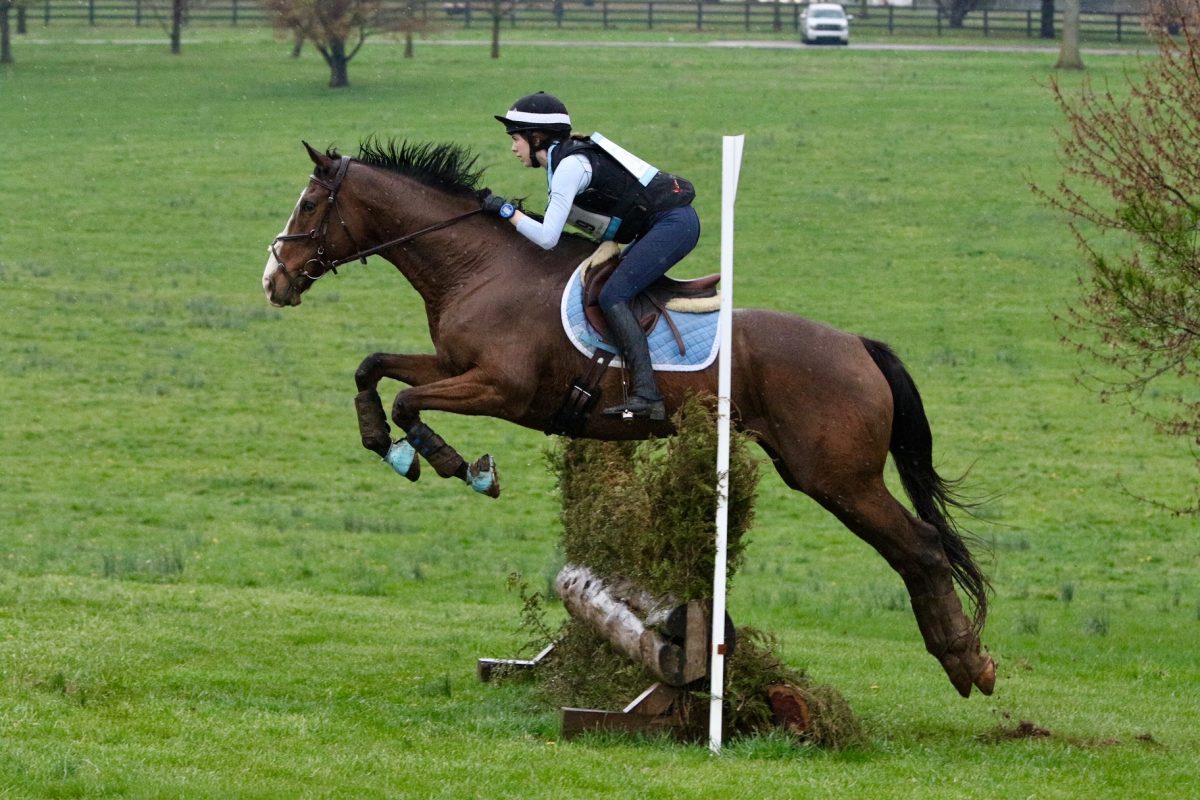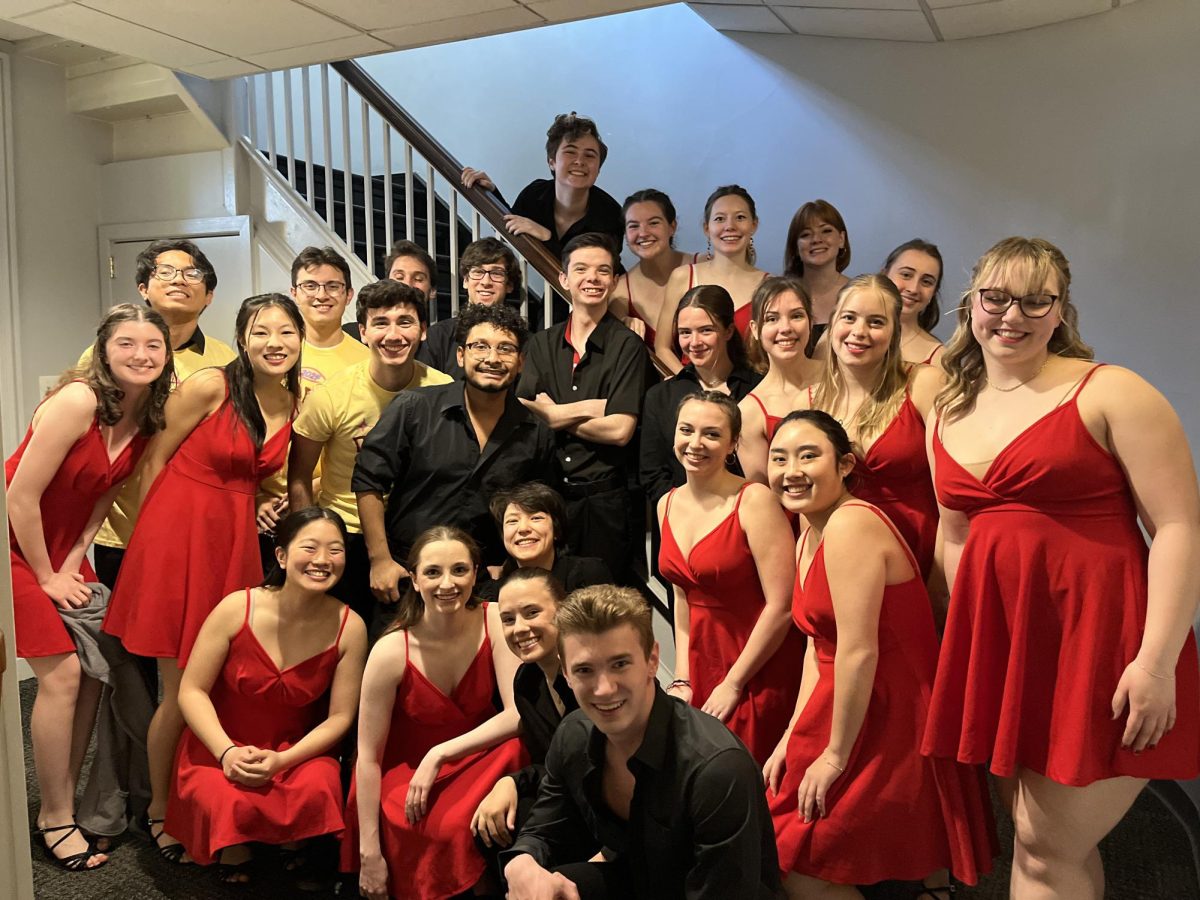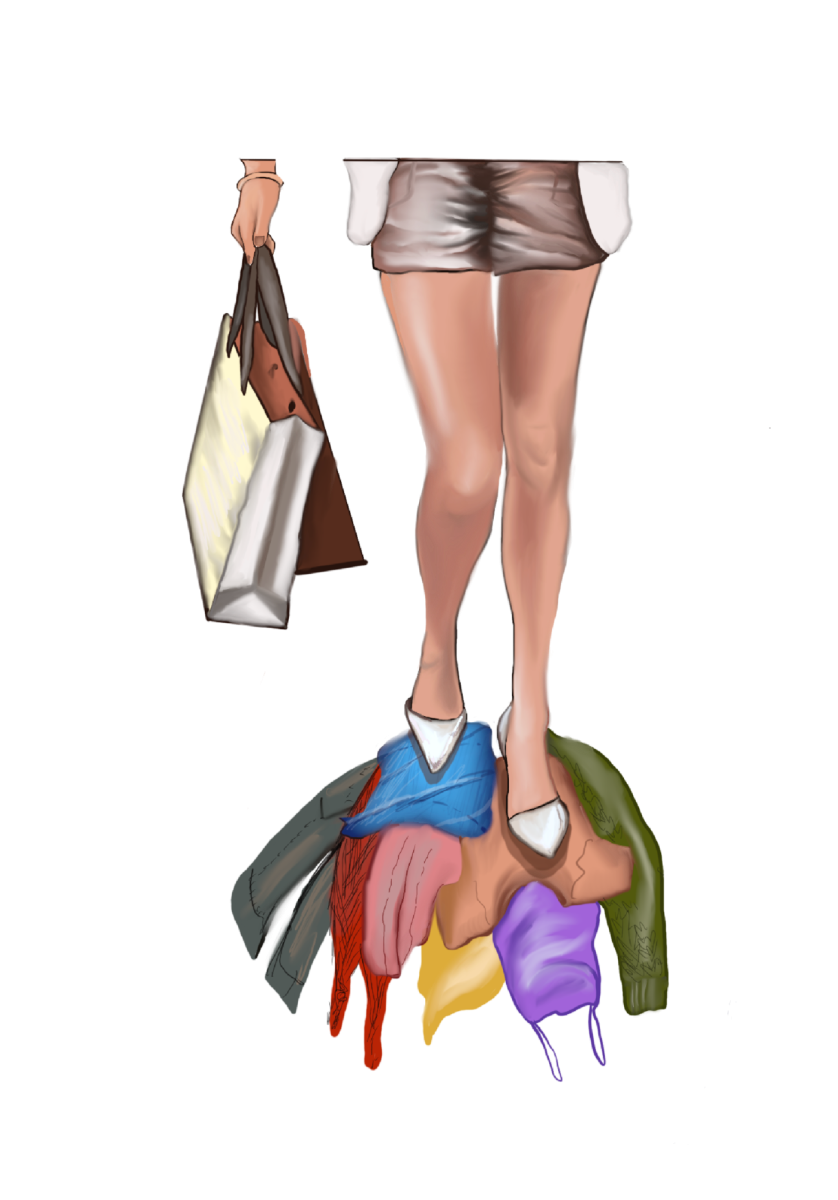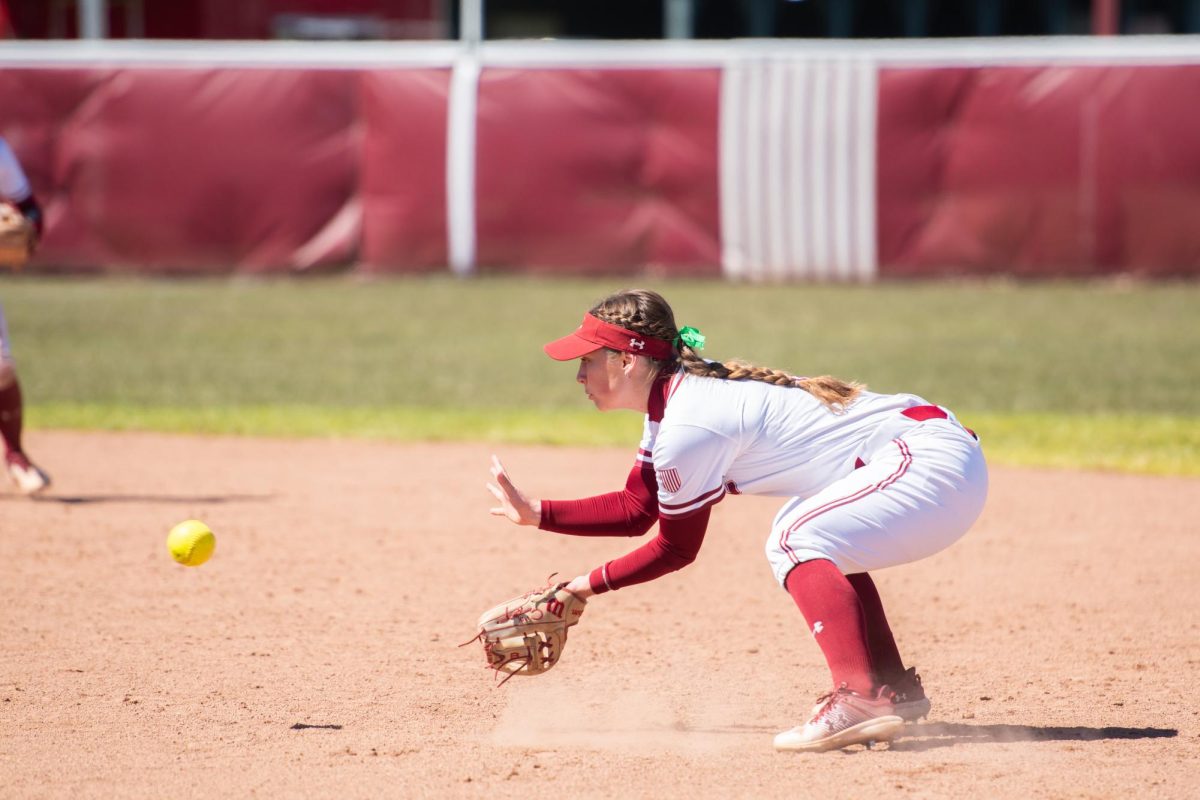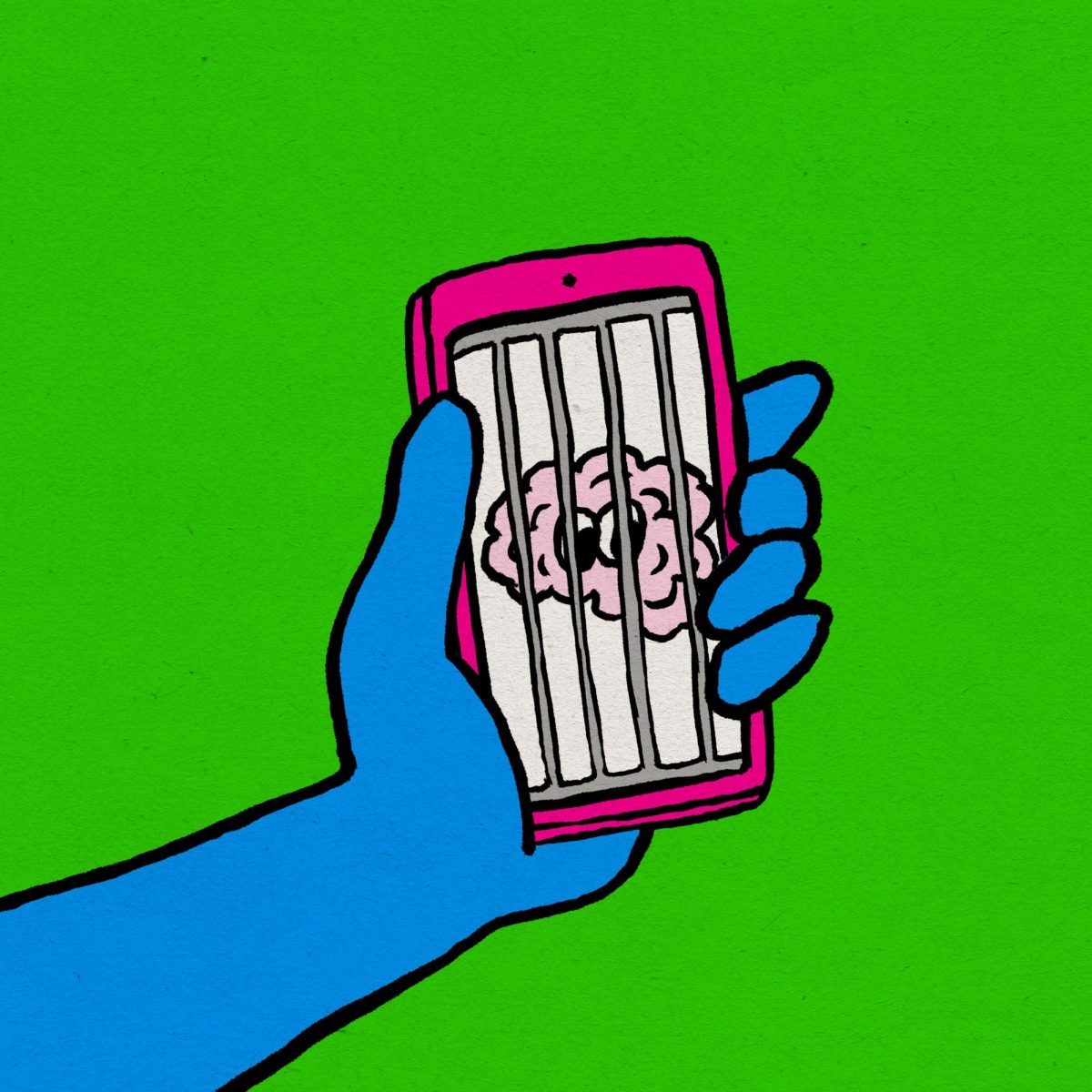We’ve all heard the jokes and stereotypes, the snarky comments and jabs. “Horse girls,” as women who ride horses are known, carries with it a dismissive and mocking air. But what is life actually like for these so-called horse girls?
For most, horseback riding started early. Junior Leah Massa began riding before she even learned to read. For her, it’s a family affair.
“I have been riding since I was three or four, but I didn’t start competing until I was six. I started because my sisters were riding and I loved tagging along to the barn,” Massa said.
Senior Dulcie Lou Morris also has a long history with horses.
“I’ve ridden horses my entire life, so almost 23 years,” Morris said. “My mom rode while she was pregnant with me, so even more if you count that.”
Massa and Morris both ride at home and compete in various divisions on Colgate University’s equestrian team.
“I guess the technical name for what I do would be show jumping, but I have competed in equitation and hunters my whole life and took a gap year before coming to Colgate to finish up my junior years of competition,” Morris explained. “I’m on Colgate’s team now and compete for the school, and I still ride at home on breaks.”
So, what is a “horse girl,” exactly? According to the New York Times, “the phrase can be one of admiration or derision, depending on who deploys it […]. From the outside, horse girls may be perceived as privileged (Princess Charlotte, a horse girl in the making), prissy (think early Taylor Swift) or weird.” Essentially, “horse girls” are thought to be obsessed with horses and are perceived as out of touch with reality. They are also often infantilized and considered immature. Many do not actually competitively ride horses, and just admire from afar.
“Personally, whenever people would call me a horse girl, I always imagined a weird kid.” Massa said.
“In terms of the stereotypical ‘horse girl,’ I don’t necessarily think there are a bunch of those kinds of people in the show world I grew up in,” Morris added. “Sometimes, I think that stereotype is more about girls that are overly obsessed with horses but don’t necessarily ride and compete on horseback.”
Junior Georgette Manos, co-captain of the Colgate Equestrian Team, especially decried the misconceptions people have after watching movies about horses.
“When I hear the phrase ‘horse girl,’ I tend to think of the really bad small town movies that feature the trope of a girl being sent off to a ranch or small town where she forms a bond with a horse — most of these movies are laughable and most ‘horse girls’ will easily tell you that,” Manos said.
Riding horses requires time, dedication, commitment and, undeniably, money. While there are exceptions, riding is not an inexpensive sport, and elements of that reality play into “horse girl” stereotypes.
“I feel like since coming to Colgate, the term ‘horse girl’ definitely has a slightly different connotation, more a symbol of wealth and being a snooty person in an upper echelon,” Massa said.
Senior Ruby Verga emphasized the distinction between the stereotype and reality. For the “horse girls” interviewed for this piece, there was an overwhelming consensus that the rigor, danger and dedication their sport requires brings it far above the publicly perceived childish, manic, pixie dream girl energy.
“[The idea of a ‘horse girl’] is definitely more of a personality thing than the actual sport […]. I would say, in general, most people that ride horses are not that stereotype,” Verga said. “I kind of feel like it’s more of a silly thing than what horseback riding really is. I think that in the competitive horseback riding world it’s not at all like the stereotype.”
“I think people assume a lot of things about any niche sport, and I will admit that horseback riding can be weird, but it is also extremely dangerous and difficult, so ‘horse girls’ should get more respect,” Morris said.
And since when are passion and commitment bad things? The “girl” in “horse girl” emphasizes the heavily gendered component of the critique to horseback riding, which treats the sport like a frivolous pastime instead of the incredibly hazardous and highly skilled activity that it is. There is no equivalent term for people who are obsessed with football, which has a lower risk for serious injury than riding.
“Riding also is incredibly dangerous because horses are very big and can be unpredictable,” junior Gwen Field, who rides independently, said. “I feel incredibly lucky to only have had one concussion due to riding, but most people I know who ride have had at least one serious injury. I recently started wearing an airbag vest that is tethered to my saddle, so if I fall off, it deploys and hopefully can prevent spine, rib and internal organ damage.”
A perception of horse obsession wasn’t pulled randomly from the air. Massa agrees that a lifetime on horseback is a major part of her identity but doesn’t see that as a bad thing — and certainly not the only thing that matters to her.
“I think being a horse girl is so silly and something I’m proud of,” Massa said. “I wish that people knew how competitive we are and put a little more respect behind their comments, but at the end of the day it truly doesn’t bother me that much. I think it used to [bother me] because I believed it was my identity, but getting older I just realized that I like horses, and that shouldn’t be the end of the world.”


